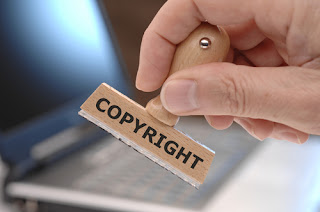Digital media around the world are an unstoppable force, both in burgeoning usage patterns and steeply rising revenues. The Global Digital Media Trendbook, in its seventh year, captures the trends in revenue and usage patterns for a variety of digital media, including tablets, mobile, social media, Internet and more, and then analyses and projects the future of these digital media segments.
The World Newsmedia Network, of which NewsBizBlog is part, is a not-for-profit, global media research company, based in the United States and the United Kingdom. WNMN and its partners distribute the Trendbook to tens of thousands of media executives, academics, advertising professionals, analysts, consultants and more.
TheTrendbook is a desk reference for media strategists across industries who want to understand where media markets are headed so they can accurately plan their companies’ digital media positioning now and in the future.
The Trendbook includes 200 full-colour pages with 500 data sets from almost 100 international research companies, including PricewaterhouseCoopers, Zenith Optimedia, Pew, comScore, Nielsen, MAGNAGLOBAL and IDATE. The research companies provide WNMN with trend data from a variety of their published and private research reports, with permission.
“We’re proud to publish this volume, chock full of meaningful insights that will inspire the digital strategies of a multitude of media companies,” said Martha Stone, CEO of World Newsmedia Network, the publisher of the Global Digital Media Trendbook 2012.
The data sets are sliced and analysed in multiple ways: by geography, demographics, gender, projections, influences from political and economic forces, and more. The variations in perspectives underscores the notion that each geography and demographic has a different story to tell about how digital media is impacting their lives, their regions and their economies.
In 2012, ZenithOptimedia predicts that Internet advertising will leapfrog newspaper advertising as the No. 2 global ad expenditure medium, surpassed only by television ad expenditures. This fact alone is driving seismic shifts in usership and advertising time and money spent across the world, as advertising agencies are finally driving major expenditures on digital media on behalf of their clients.
“Digital media is now the No. 2 media for ad expenditures, according to Zenith. Finally, Internet, mobile and soon, tablets, will enjoy the surge of advertising spend proportional to their vast usage,” said Ms. Stone. “This is the inflection point for digital media, and heretofore, I predict we will see significantly more investment in digital media publishing infrastructure and advertising spend, as usership skyrockets.”
While the rate of year-on-year Internet advertising growth is slowing, from 16.9 percent to 11.2 percent from 2011 to 2012, the year-over-year increase is almost double that of any other media, according to MAGNAGLOBAL.
Singular and multitasking usage patterns for incumbent digital media as the Internet and mobile continue to skyrocket, while new sales and usage for channels such as tablets and apps are taking off and promise to be dominant platforms for the future of publishing.
The outlook for e-reading, tablets and smartphone devices is robust for the foreseeable future, especially for Apple devices, according to Generator Research. The research firm projects a whopping 108.3 percent increase from 2012 to 2016 for tablets; a 77.5 percent growth on smartphones, and a 22.5 percent growth on notebooks.
Meanwhile, netbooks appear to be negatively affected by the introduction of tablets, and are projected to decline 65.2 percent from 2012 to 2016, while e-readers sales will drop slightly, by 2.8 percent. By 2016, smartphone shipments are projected to surpass 1.1 billion units, while tablet shipments are expected to reach 250 million by 2016. E-reader shipments will be stagnant, with only 35 million
Publishers and other media owners continue to struggle with growing revenues as fast as the usership is growing. Charging for content online is also a growing phenomenon, and is explored in depth in the report. Advertising for the traditional media sector is rising, if slowly, as the report chronicles in case studies and data sets across digital arms of newspapers, magazines and broadcast.
The partners that make the Trendbook possible are the European Publishers Council, a high level group of leading European media corporations; FIPP, the worldwide magazine media association; and Vislink, the global purveyor of broadcast industry hardware and software.
Global Digital Media Trendbook’s 20-page executive summary is offered free for download at www.wnmn.org. The 200-page report is available for 300 Euros, and the 500 graphic sets are available as .jpg format documents for free with the purchase of the report. These can be used for corporate presentations, annual reports or supplements to existing research. An order form for the report can be found in the executive summary, or a form can be requested by e-mailing mstone@wnmn.org.










